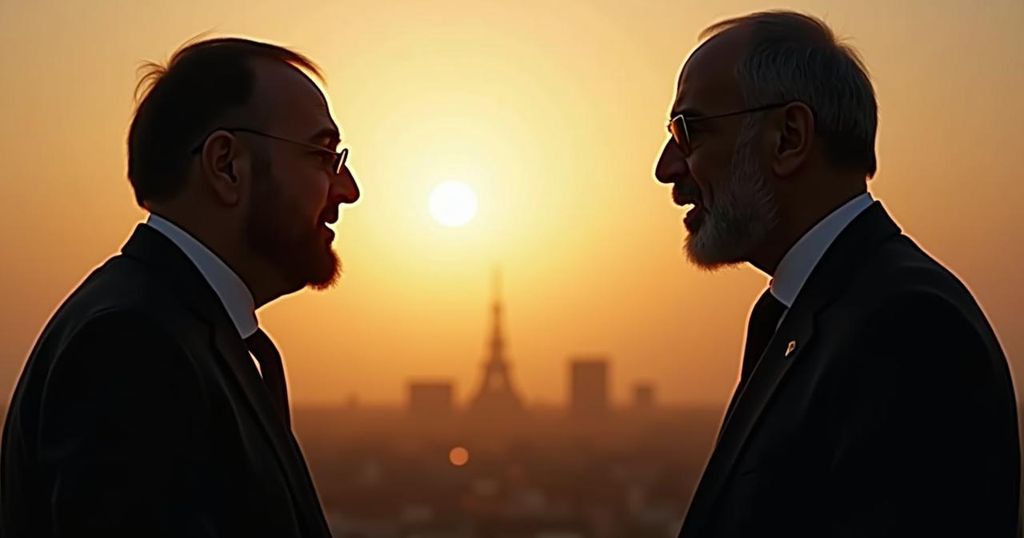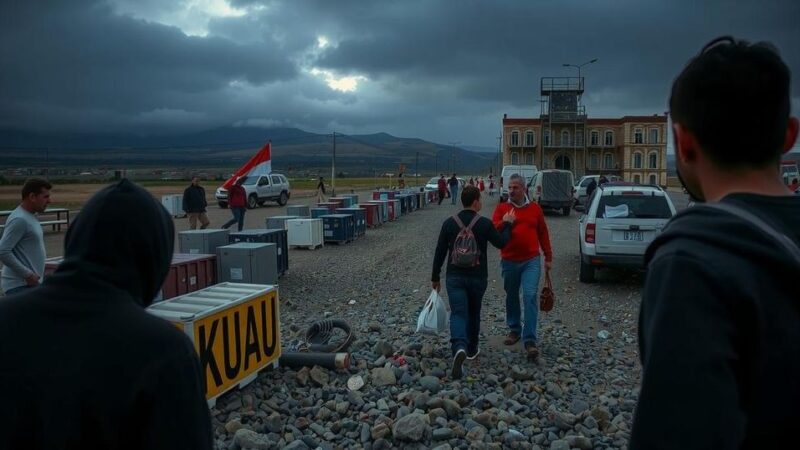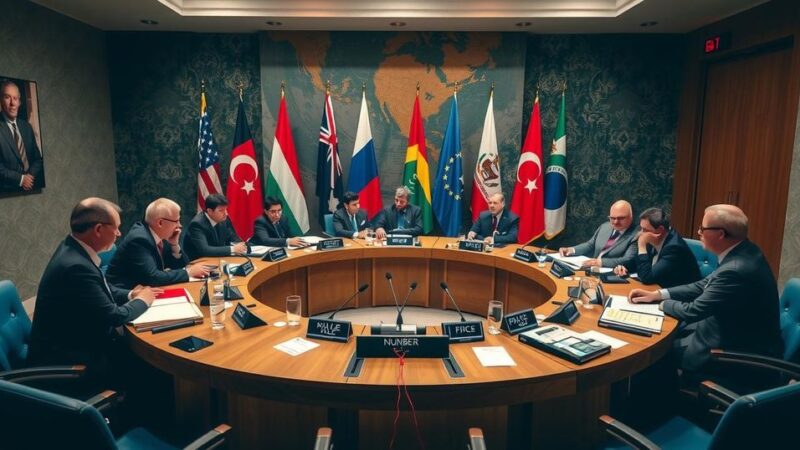Iranian President Masoud Pezeshkian reprimanded French President Emmanuel Macron during a meeting at the UN, criticizing France’s support for Israel’s military actions in Gaza and Lebanon. The discussion underscores the tensions surrounding Israel’s conflict and Iran’s position in advocating for Palestinian rights.
During a recent meeting held at the United Nations Headquarters in New York, Iranian President Masoud Pezeshkian expressed strong disapproval of French President Emmanuel Macron regarding France’s backing of Israel amid the ongoing conflict in Gaza and the recent military actions in Lebanon. This encounter took place on September 24, 2024, during the United Nations General Assembly. As reported by Press TV, Pezeshkian’s remarks underscored Iran’s condemnation of what it perceives as unjust military aggression supported by Western nations, particularly France. This discussion highlights escalating tensions in the Middle East, particularly concerning the humanitarian crisis in Gaza and the political dynamics surrounding Lebanon. Pezeshkian’s critique reflects Tehran’s broader discontent with Western support for Israeli actions and emphasizes the Iranian government’s position in advocating for Palestinian rights and regional stability. The meeting serves as a critical focal point for understanding the intricate geopolitical relationships that shape current events in the region and raises pertinent questions about the international community’s role in resolving such conflicts.
The ongoing conflict between Israel and Gaza has drawn widespread global attention, particularly with the significant humanitarian crises resulting from military actions in these territories. France, under President Macron, has historically aligned itself with Israel, advocating for its right to defend itself while facing criticism for insufficiently addressing the humanitarian implications on the Palestinian population. Iran, opposing this stance, claims that Western support fuels further violence and instability in the region, particularly in relation to Lebanon, where tensions have also escalated due to cross-border military actions. This backdrop of geopolitical strife highlights the complexities of international diplomacy and the challenges in achieving a balanced resolution to the conflict.
In summary, President Masoud Pezeshkian’s reprimand of President Emmanuel Macron illustrates the deep-seated tensions in Middle Eastern geopolitics, especially regarding the Israel-Palestine conflict. As Iran continues to assert its position against perceived Western favoritism towards Israel, the implications for regional peace and stability remain significant and complex. The dialogue during the UN meeting emphasizes the critical nature of addressing humanitarian concerns amidst ongoing conflicts.
Original Source: www.hindustantimes.com






